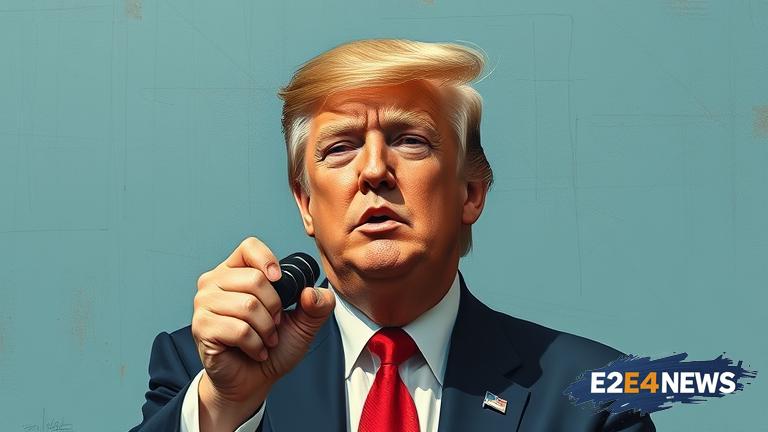The recent trend of media and tech firms appeasing US President Donald Trump has raised concerns about censorship and the erosion of free speech. Satirists have been vocal in their criticism, pointing out the hypocrisy of companies that claim to champion freedom of expression while simultaneously bending to Trump’s demands. The issue has sparked a heated debate about the role of social media and tech companies in regulating online content. Trump has been known to use his platform to attack and intimidate critics, and his influence has led to the suppression of dissenting voices. Many have argued that this sets a dangerous precedent, where the powerful are able to silence their critics and shape public discourse to their advantage. The situation has been likened to a form of ‘soft censorship,’ where companies self-censor to avoid backlash from the administration. This has led to a stifling of satire and criticism, as comedians and writers are reluctant to speak out against the president for fear of reprisal. The impact of this trend can be seen in the way that social media companies have handled Trump’s tweets, which often contain false or misleading information. Despite this, the companies have been reluctant to take action, citing concerns about censorship and the need to protect free speech. However, this approach has been criticized for being overly broad, and for failing to distinguish between legitimate speech and hate speech or harassment. The issue has also raised questions about the role of satire in a democratic society, and whether it is still possible to speak truth to power in the age of Trump. Satirists have long been a thorn in the side of politicians, using humor and irony to critique and challenge those in power. However, the current climate has made it increasingly difficult for them to do their job, as they face backlash and intimidation from the administration and its supporters. The situation has been described as a ‘chilling effect,’ where the fear of reprisal leads to self-censorship and a stifling of dissenting voices. This has serious implications for democracy, as it undermines the ability of citizens to hold their leaders accountable and to engage in open and honest debate. The controversy has also highlighted the need for greater transparency and accountability in the way that social media companies regulate online content. Many have called for more robust policies and procedures to be put in place, to ensure that companies are not unfairly censoring certain viewpoints or perspectives. The issue is complex and multifaceted, and there are no easy solutions. However, it is clear that the current trend of appeasement and censorship is unsustainable, and that a more nuanced approach is needed to balance the need to protect free speech with the need to regulate online content. The situation has sparked a wider debate about the role of media and tech firms in society, and the need for greater accountability and transparency. As the controversy continues to unfold, it remains to be seen how companies will respond to the criticism, and whether they will take steps to address the concerns of satirists and other critics. The issue has also raised questions about the impact of Trump’s presidency on the media landscape, and the ways in which his influence has shaped the way that companies approach issues of free speech and censorship. The situation is a reminder that the First Amendment is not just a legal principle, but a cultural and social norm that is essential to the health of democracy. As such, it is essential that companies and individuals do everything in their power to protect and promote it, even in the face of intimidation and backlash from the administration.
